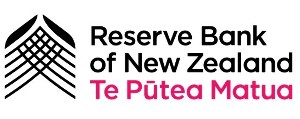The Economic Development, Science and Innovation Committee has provided its report on the bill, which recommends it be passed, with amendments.
They include tweaks to advisers' duty to put clients’ interests first, clarification that switching KiwiSaver schemes is “advice”, tweaks to definitions and the scope of nominated representatives, and dispute resolutions’ reporting requirements.
Financial Advice NZ chief executive Katrina Shanks said she was disappointed.
“We ask that Minister [Kris] Faafoi take another look, particularly at the demarcation between sales and advice.”
“In our submission we highlighted that to support good outcomes for Kiwis, we must provide clarity and ensure the public understands the difference between sales and advice, and the various types of advisers,” she said.
“As it stands, the bill only provides a definition of regulated financial advice but is silent on the definition of ‘product advice’. This decision could have been made in the select committee, and would have provided a stronger framework for the Code – and for Kiwis and advisers – on this crucial line in the sand.”
She said there were also concerns around the risk of lowering professional standards and the lack of certainty about the impact of the new rules on small advice firms.
“While the Code will set standards, the bill sets the tone. The public deserves to know that the advice that they receive is from a person held to consistently high standards right across the industry. The current bill leaves room for standards to be set at the lowest common level.
“Sole practice or small adviser firms are crucial in ensuring that Kiwis can access financial advice – a point we highlighted in our submission. A key objective of the review was to ensure public access to advice, however the bill does not bring any certainty to small adviser firms in terms of the cost or business impact of the new regime.”
She said the bill did not reflect the core purpose of the original legislation, which was to encourage public confidence in the professionalism and integrity of financial advisers.
“This may ultimately mean that the Kiwi public have less choice when accessing a financial adviser.”
Code Working Group chairman Angus Dale-Jones welcomed the recommendations. It had been operating on the assumption that the committee would extend the scope of “financial planning” beyond investment – it had left it to be defined by regulation, he said.
“It gives us the scope to do everything we need to do.”
The group would now get on with the job of drafting standards, he said. “We’ve got all the tools we need to differentiate what people are doing. Anyone who purports to be giving advice has got a reasonably high bar to jump over. The code’s job is to make that bar reasonable but keep the standards of the profession high.”
The group would meet again today. It aimed to give a code to Faafoi if not before Christmas, at least early in the new year, he




